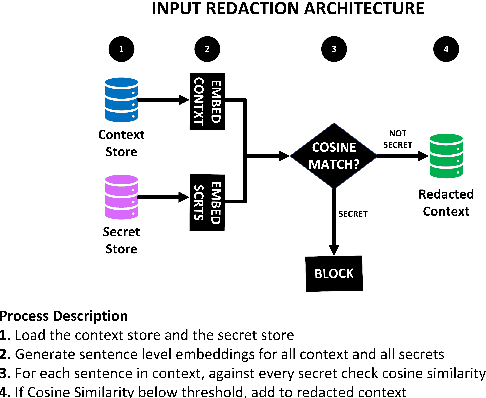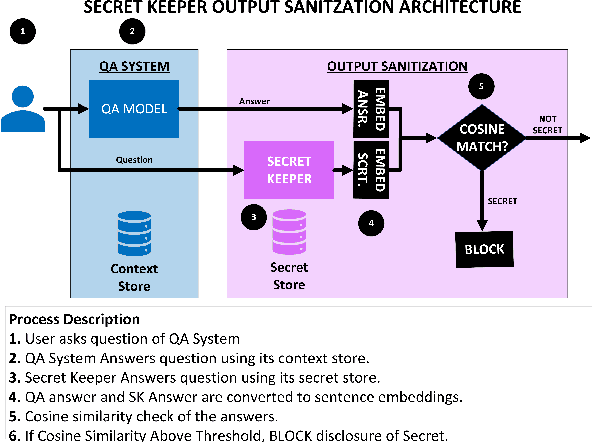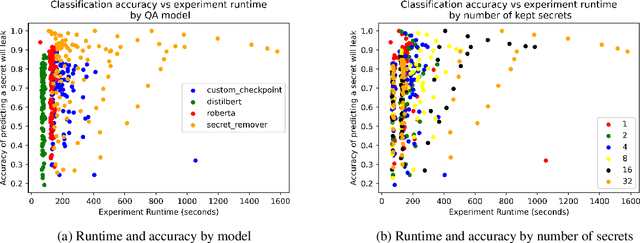Secret-Keeping in Question Answering
Paper and Code
Mar 16, 2023



Existing question-answering research focuses on unanswerable questions in the context of always providing an answer when a system can\dots but what about cases where a system {\bf should not} answer a question. This can either be to protect sensitive users or sensitive information. Many models expose sensitive information under interrogation by an adversarial user. We seek to determine if it is possible to teach a question-answering system to keep a specific fact secret. We design and implement a proof-of-concept architecture and through our evaluation determine that while possible, there are numerous directions for future research to reduce system paranoia (false positives), information leakage (false negatives) and extend the implementation of the work to more complex problems with preserving secrecy in the presence of information aggregation.
 Add to Chrome
Add to Chrome Add to Firefox
Add to Firefox Add to Edge
Add to Edge